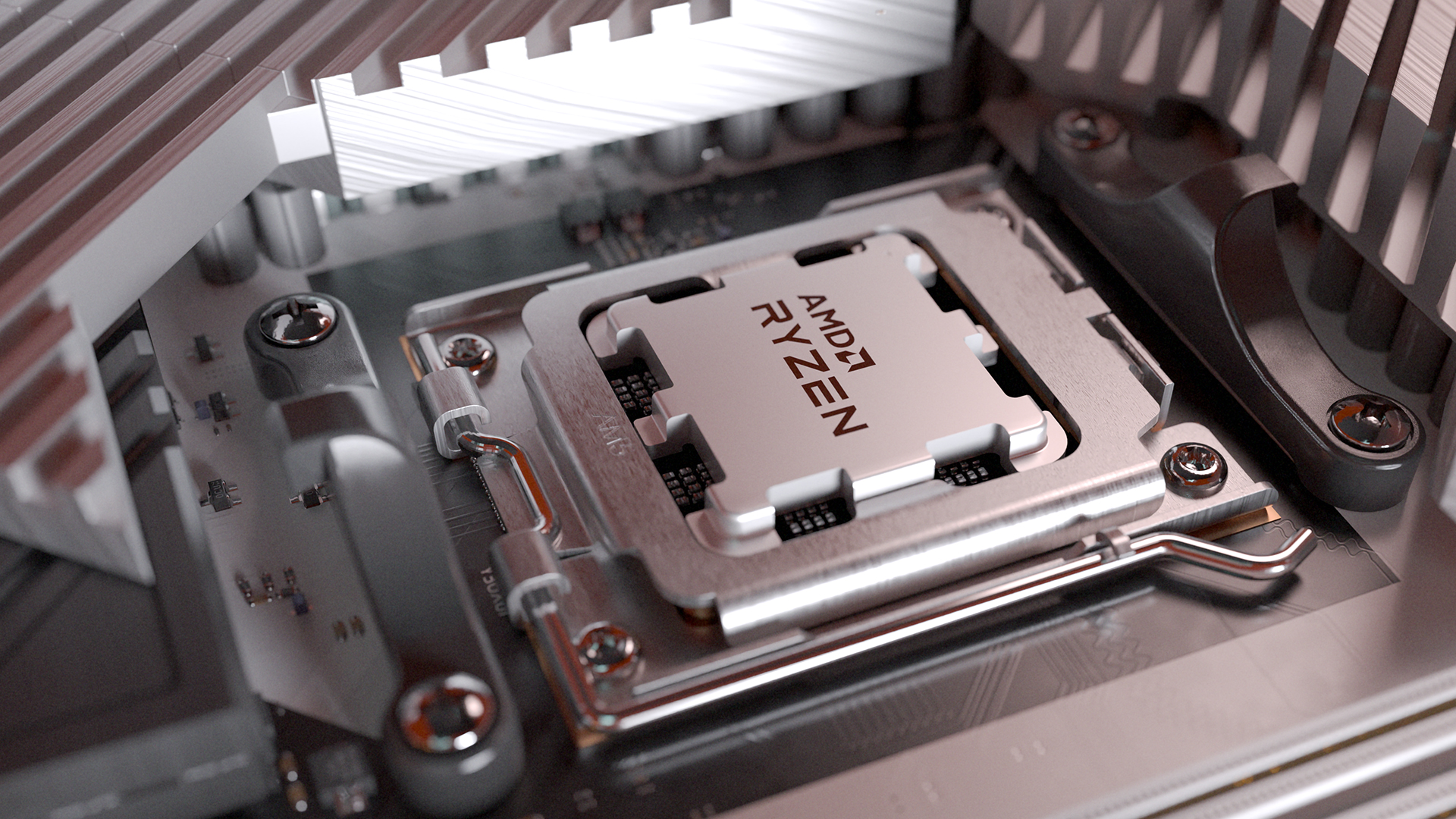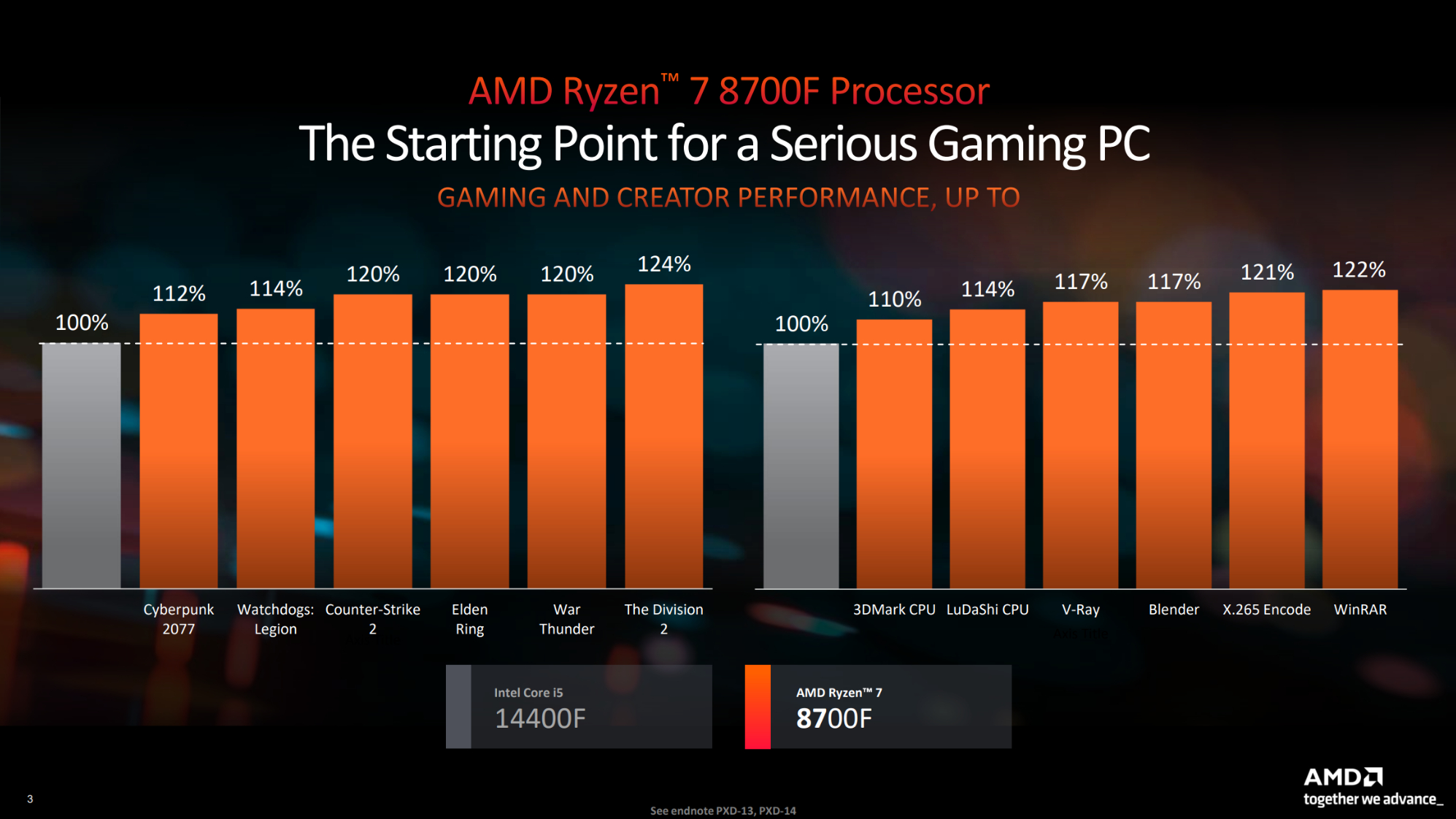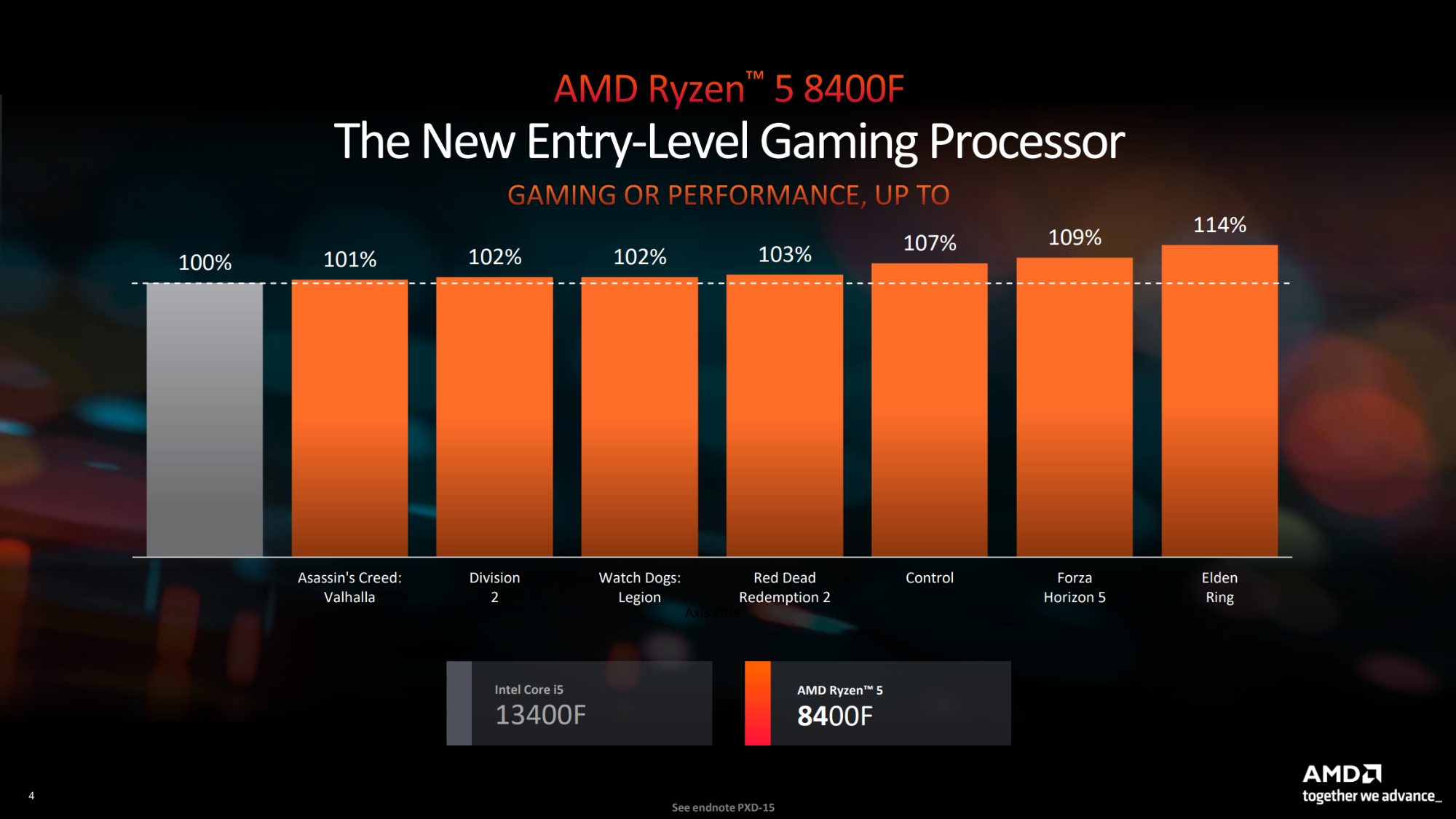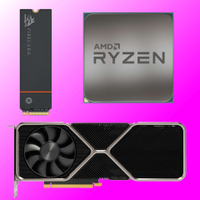AMD's launched a pair of new budget chips in its 8000-series, lopping the GPUs of its APUs
One looks like it could be the bargain CPU of 2024. The other...err...sadly not.

AMD has finally launched two new processors in its 8000-series of APUs, except these ones strictly aren't APUs (Accelerated Processing Units) as the large integrated GPU is completely disabled. That might not seem like they're worth considering but AMD has sweetened the deal by making them its cheapest AM5 socket chips to date.
We first heard tell of these new models, based on the non-chiplet Phoenix 2 architecture, back in March and now we've got a full global launch on our hands. The silicon was originally used for laptops and some handheld PCs, before making an appearance in the desktop PC market in the form of the 8000G series. The best one of those, the Ryzen 7 8700G, is a great way to start the basis of a cheap 1080p gaming PC, although it's a little on the pricey side with a SEP of $329.
| Model | Cores / threads | Boost clock | L3 cache | Integrated GPU | Ryzen AI NPU | SEP |
|---|---|---|---|---|---|---|
| Ryzen 7 8700G | 8 / 16 | 5.1 GHz | 24MB | 12 CU (RDNA 3) | Yes - 16 TOPS | $329 |
| Ryzen 7 7700 | 8 / 16 | 5.3 GHz | 32MB | 2 CU (RNDA 2) | No | $329 |
| Ryzen 7 8700F (new) | 8 / 16 | 5.0 GHz | 24MB | None | Yes - 16 TOPS | $269 |
| Ryzen 5 8600G | 6 / 12 | 5.0 GHz | 16MB | 8 CU (RDNA 3) | Yes - 16 TOPS | $229 |
| Ryzen 5 7500F | 6 / 12 | 5.0 GHz | 32MB | None | No | $179 |
| Ryzen 5 8500G | 6 / 12 | 5.0 GHz | 16MB | 4 CU (RNDA 3) | No | $179 |
| Ryzen 5 8400F (new) | 6 / 12 | 4.7 GHz | 16MB | None | No | $169 |
That's the same price as the Ryzen 7 7700, which only has a very basic GPU, though its higher boost clock speed and larger L3 cache make it a better CPU than the 8700G. The new Ryzen 7 8700F has no GPU whatsoever and has a lower boost clock than the 8700G and 7700, but it's quite a lot cheaper—its SEP of $269 is $60 less than the other two 8 core processors. And, unlike the Ryzen 7 7700, you do get a Wraith Stealth CPU cooler included in the box. It's not a great air cooler, but it will get you up and running.
The issue we found with the 8700G, however, was that it performs noticeably worse than the equivalent chiplet-based CPU when paired with a discrete graphics card. That's going to be the same with the 8700F, and you can mostly blame that lack of L3 cache for the lower frame rates. But a $60 saving is a $60 saving, and you can be up and running without having to fork out for a third-party cooler.
But if that's still too expensive for you, how does $169 sound for a CPU with six cores, 12 threads, and a boost clock of 4.7 GHz? That really is cheap but the problem for the new Ryzen 5 8400F is that the GPU-less Ryzen 5 7500F is only $10 more and it has double the amount of L3 cache and a noticeably higher boost clock.
And it's not like the 8400F uses less power, as all of the above chips in the above table have a TDP of 65 W.


AMD is claiming a performance win over equivalent budget Intel chips from the past two generations, by up to 24% higher frame rates for the 8700F over the Core i5 14400F. Though it's worth noting these are AMD's own cherry-picked results, so we'll see what they look like in independent tests.
The biggest gaming news, reviews and hardware deals
Keep up to date with the most important stories and the best deals, as picked by the PC Gamer team.
The 8700F and 8400F are chips that are likely to have failed the binning process to be 8000G processors, due to manufacturing defects in the GPU. So rather than grinding them down and sticking them in the trash can, it's a sensible choice to repackage them as budget offerings.
Well, the 8700F is certainly a good option for a budget-minded PC builder, but the 8400F isn't cheap enough. For the sake of the price of a couple of coffees, you could get the far superior Ryzen 5 8500G or Ryzen 5 7500F. If it was my money, I'd get the 7500F even though its GPU is mediocre compared to the 8500G's.
The latter only has 4 Compute Units, half that in the Steam Deck's chip, so you're pretty much limited to basic or old games, even at 1080p. Sure, you won't be playing any games with the 7500F's GPU but given that it's the more capable CPU of the two (L3 cache helps a lot in games), that's where my money would be heading to.
I can't see AMD releasing any more Zen 4 variants now, as it'll be gearing up ready to launch its forthcoming Zen 5 range for desktop PCs, laptops, workstations, and well, everything really.
Best CPU for gaming: Top chips from Intel and AMD.
Best gaming motherboard: The right boards.
Best graphics card: Your perfect pixel-pusher awaits.
Best SSD for gaming: Get into the game first.

Nick, gaming, and computers all first met in 1981, with the love affair starting on a Sinclair ZX81 in kit form and a book on ZX Basic. He ended up becoming a physics and IT teacher, but by the late 1990s decided it was time to cut his teeth writing for a long defunct UK tech site. He went on to do the same at Madonion, helping to write the help files for 3DMark and PCMark. After a short stint working at Beyond3D.com, Nick joined Futuremark (MadOnion rebranded) full-time, as editor-in-chief for its gaming and hardware section, YouGamers. After the site shutdown, he became an engineering and computing lecturer for many years, but missed the writing bug. Cue four years at TechSpot.com and over 100 long articles on anything and everything. He freely admits to being far too obsessed with GPUs and open world grindy RPGs, but who isn't these days?


